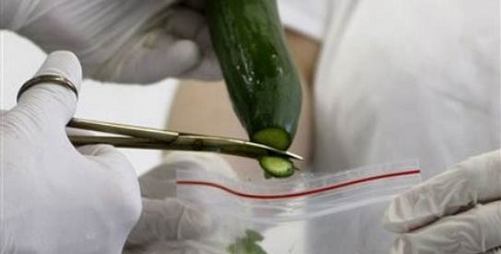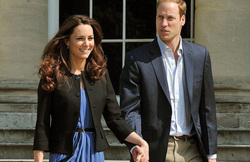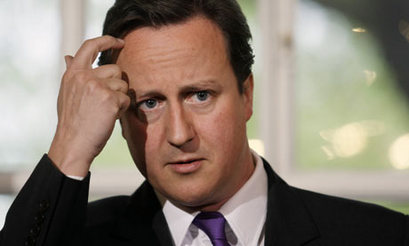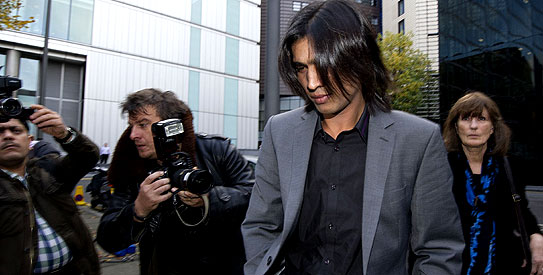A TWISTED husband laced his wife's food with steroids to transform her into a fat stay-at-home mum.
Sick Dalwara Singh slipped the drug into her dinner — causing her to develop facial hair and break out in spots.
Singh was only caught out when the couple's teenage daughter heard him grinding a pestle and mortar in his bedroom.
His wife then discovered the drugs hidden in a locked cupboard and called in cops.
Singh admitted administering a poison or noxious substance with intent to injure, aggrieve or annoy at Leicester Crown Court yesterday.
But he escaped jail – and was handed a suspended prison sentence instead.
Judge Ebraham Mooncey said he had only narrowly dodged jail, telling him: "You may have been doing it to make her give up her job, gain weight and stay indoors and make her want you and rely on you.
"It was a well-planned exercise and you say you gave her the steroids at least four or five times. It's had a terrible effect on her, causing long-term emotional harm."
The couple had been married for 17 years and have a son and a daughter, aged 15 and 16.
Caroline Bray, prosecuting, said Singh gave his wife the drugs to keep her at home.
She told the court: "He wanted to stop her from going out for walks, because he wanted her to be at home to cook for him and look after the children.
"He said he didn't consider the side effects and intended to stop.
"These steroids have no listed benefits for women and can have permanent masculating effects, although they weren't administered long enough in this case."
David Martin-Sperry, defending, admitted it was a "bizarre" case but said his client was "deeply embarrassed and ashamed".
He said Singh moved out and now lives alone with limited access to his children though he still pays his wife's bills.
He was handed a 12-month sentence suspended for two years and was slapped with a restraining order banning any contact with his estranged wife other than through solicitors or social services.
LONDON: The three Pakistan cricketers convicted of fixing parts of a test match will find out Thursday whether they will spend time in jail for their role in the sports’ most serious corruption scandal in more than a decade.
Judge Jeremy Cooke spent Wednesday listening to mitigating statements from lawyers representing Salman Butt, Mohammad Asif, Mohammad Amir and sports agent Mazhar Majeed, all of whom have been connected to a betting scam involving the deliberate bowling of no-balls.
Cooke will mull the case overnight before delivering their sentences at London’s Southwark Crown Court at 10 a.m. (1000 GMT) Thursday.
Former captain Butt and bowler Asif were found guilty on Tuesday of conspiracy to cheat and conspiracy to accept corrupt payments. Amir and Majeed pleaded guilty to the charges before the trial.
The latter charge carries a possible jail term of seven years.
The scandal is cricket’s biggest since South Africa captain Hanse Cronje was banned for life in 2000 for taking bribes from bookmakers.
Majeed declined to name others involved in the scam despite his guilty plea. He told Cooke that he did not instigate the fixes but that the players approached him.
A murky picture of widespread dishonesty emerged Thursday as allegations and counter allegations flew between the players and Majeed during their statements, prompting Cooke to declare his belief that fixing was so common within the Pakistan squad that it was regarded as the norm.

LONDON: World Health Organization said Thursday that the E. coli bacteria responsible for a deadly outbreak that has left 18 dead and sickened hundreds in Europe is a new strain that has never been seen before.
Preliminary genetic sequencing suggests the strain is a mutant form of two different E. coli bacteria, with aggressive genes that could explain why the Europe-wide outbreak appears to be so massive and dangerous, the agency said.
Hilde Kruse, a food safety expert at the WHO, told The Associated Press that ‘‘this is a unique strain that has never been isolated from patients before.’’
She added that the new strain has ‘‘various characteristics that make it more virulent and toxin-producing’’ than the hundreds of E. coli strains that people naturally carry in their intestines.
So far, the mutant E. coli strain has sickened more than 1,500 people, including 470 who have developed a rare kidney failure complication, and killed 18, including one overnight in Germany, the country hit hardest by the outbreak.
Researchers have been unable to pinpoint the cause of the illness, which has hit at least nine European countries, and prompted Russia on Thursday to extend a ban on vegetables to the entire European Union.
Kruse said it’s not uncommon for bacteria to continually mutate, evolving and swapping genes. ‘‘There’s a lot of mobility in the microbial world,’’ she said. Kruse said it was difficult to explain where the new strain came from but said strains of bacteria from both humans and animals easily trade genes, similar to how animal viruses like Ebola sometimes jump into humans.
‘‘One should think of an animal source,’’ Kruse said. ‘‘Many animals are hosts of various types of toxin-producing E. coli.’’ Some scientists suspect the deadly E. coli might have originated in contaminated manure used to fertilize vegetables.
Previous E. coli outbreaks have mainly hit children and the elderly, but the European outbreak is disproportionately affecting adults, especially women. Kruse said there might be something particular about the bacteria strain that makes it more dangerous for adults.
But she cautioned that since people with milder cases probably aren’t seeking medical help, officials don’t know just how big the outbreak is.
‘‘It’s hard to say how virulent (this new E. coli strain) is because we just don’t know the real number of people affected.’’
Nearly all the sick people either live in Germany or recently traveled there. Two people who were sickened are now in the United States, and both had recently traveled to Hamburg, Germany, where many of the infections occurred. British officials announced four new cases, including three Britons who recently visited Germany and a German person on holiday in England.
German officials have warned people not to eat lettuce, tomatoes and cucumbers. To avoid foodborne illnesses, WHO recommends people wash their hands before eating or cooking food, separating raw and cooked meat from other foods, thoroughly cooking food, and washing fruits and vegetables, especially if eaten raw. Experts also recommend peeling raw fruits and vegetables if possible.
Fearful of the outbreak spreading into Russia, the country on Thursday extended its ban on vegetable imports to all of the EU. Russia had banned fresh imports from Spain and Germany on Monday.
The United Arab Emirates issued a temporary ban on cucumbers from Spain, Germany, Denmark and the Netherlands. State news agency WAM said the Gulf nation’s Minister of Environment and Water issued the order based on information ‘‘from international food safety agencies and news reports.’’
Lyubov Voropayeva, spokeswoman for the Russian Agency for the Supervision of Consumer Rights, told the AP the Russian ban has been imposed immediately and indefinitely.
The agency’s chief Gennady Onishchenko told Russian news agencies that this ‘‘unpopular measure’’ would be in place until European officials inform Moscow of the cause of the disease and how it is being spread.
‘‘How many more lives of European citizens does it take for European officials to tackle this problem?’’ he told the state-owned RIA Novosti news agency.
No fatalities or infections have yet been reported in Russia.
The European Union argued the Russian ban was disproportionate. Frederic Vincent, a spokesman for the EU’s Health and Consumer Policy Commissioner John Dalli, said Thursday that the European Commission would write to Russia to demand further clarification of the ban.
Meanwhile, Spain’s prime minister slammed the European Commission and Germany for singling out the country’s produce as a possible source of the outbreak, and said the government would demand explanations and reparations.
Jose Luis Rodriguez Zapatero told Spanish National Radio that the German federal government was ultimately responsible for the allegations, adding that Spain would seek ‘‘conclusive explanations and sufficient reparations.’’

The newlyweds will use Kensington Palace as their London residence.
Prince William and wife Kate will move in to the childhood home where he lived with Princess Diana in the next few days.
Their time will be split the capital and their cottage in Anglesey, where he is based as a search and rescue pilot.
Wills, 28, and Kate, 29, who attended Saturday's Derby at Epsom racecourse, will live in a relatively small apartment at the stunning central London location.
A royal source said: "They are really looking forward to moving in soon and having a base in the capital.
"Kate and William love the peace and quiet of Anglesey but they can't just stay holed up there for the next two years.
"The public want to see them, and it makes sense for them to have a base in the capital.
"They both love London and have lots of friends there and it's a good place for Kate to get stuck into thinking about what charities she wants to promote and other work she might take on."

THE Tory guru behind David Cameron’s Big Society idea has hit money troubles.
Phillip Blond, set up the think-tank ResPublica two years ago to promote his “red Tory” brand of community-focused politics.
The Prime Minister hailed the organisation for its “fresh and radical thinking”.
But the limited company, whose sole director and owner is Cambridge-educated Mr Blond, is believed to have cut staff from 16 to six in a round of redundancies.
And workers were locked out of their offices near Downing Street last month because the rent hadn’t been paid. A spokesman for Mr Blond said the staff lock-out lasted “several days” and was the result of a technical bank account glitch while he was abroad rather than a lack of cash.
Accounts lodged at Companies House show the firm has “net current liabilities” of £13,358.
A ResPublica spokesman insisted it made “a healthy profit” of about £4,000 last year. Mr Blond, step-brother of Bond actor Daniel Craig, owes the firm £38,609.
The spokesman added: “I can confirm that ResPublica has recently been through a period of restructuring, prior to the think-tank becoming a not-for-profit company, which has involved some redundancies, and towards the end of the summer we will be recruiting additional staff.”





 RSS Feed
RSS Feed